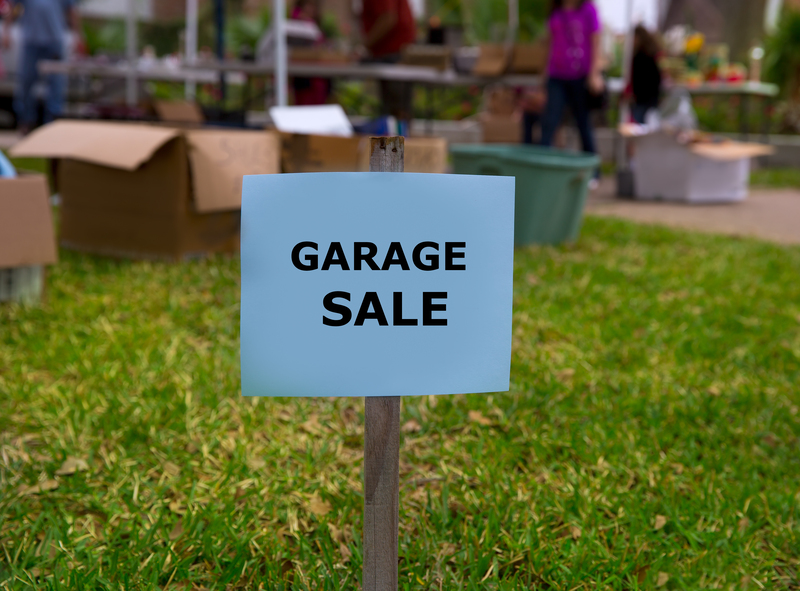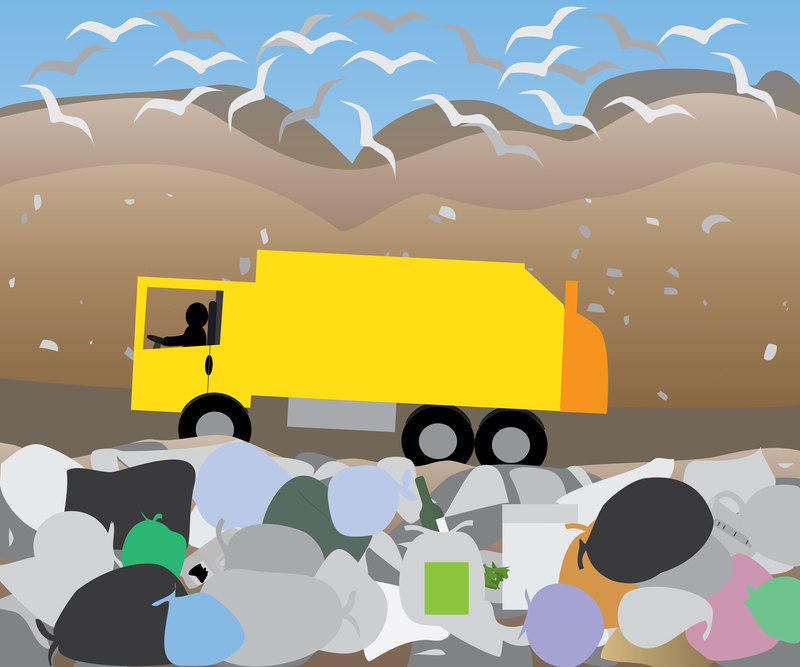How to Minimize Expenses When Handling Bulky Waste Items
Disposing of large, bulky waste items such as furniture, appliances, or construction debris can be both challenging and expensive. However, there are numerous strategies and practical tips to reduce these costs significantly. In this comprehensive guide, you'll discover the most effective ways to minimize expenses when handling bulky waste items, ensuring both your budget and the environment benefit.

Understanding Bulky Waste and Its Challenges
Before exploring cost-saving solutions, it's vital to understand what qualifies as bulky waste and why its management can be so costly.
*What is Bulky Waste?*
- Large household items: sofas, beds, wardrobes, and tables.
- White goods: old refrigerators, washing machines, ovens, and freezers.
- Building debris: rubble, doors, bathtubs, and sinks.
- Garden waste: large branches, felled trees, and sheds.
*Why is Bulky Waste Disposal So Expensive?* The costs for removal often include labor, transportation, landfill or recycling fees, and sometimes administrative charges. Ignoring sustainable practices may also result in additional penalties.
Key Strategies to Reduce Bulky Waste Disposal Costs
1. Reduce Waste at the Source
The cheapest bulky waste is the one you never throw away. Consider these tips:
- Opt for quality and durability when purchasing furniture or appliances to extend their lifespan.
- Maintain and repair: Regularly maintain items to prevent costly breakdowns and early disposal.
- Refurbishment: Give items a new lease of life--reupholster furniture or repaint cabinets, for example.
2. Sell or Donate Usable Items
Maximize value and minimize waste by giving items a second life:
- Online marketplaces: List items on platforms like Craigslist, Facebook Marketplace, or OfferUp.
- Host a garage sale or join local swap events.
- Donate to charities, shelters, schools, or community centers--many offer free collection services.
3. Assess Free or Low-Cost Local Council Services
- Many municipalities offer bulky item collection services either free or at a reduced cost.
- Check your local council's guidelines--some allocate a set number of free pickups per household annually.
- Follow proper preparation instructions to avoid additional charges (e.g., separating items, bundling branches).
4. Utilize Recycling Centers and Drop-Off Points
Specialized recycling or waste centers often accept bulky items for free or nominal fees:
- Find out which centers accept appliances, mattresses, scrap metal, or garden waste in your area.
- Some retailers offer appliance recycling or removal when delivering new products--always ask!
- Separate recyclable materials (like metal frames, clean wood, or electronics), as they may have dedicated bins.
5. Coordinate With Neighbors
Pooling resources can reduce individual costs:
- Organize a community clean-out day and share the cost of a skip or dumpster rental.
- Group together when booking professional collection services to access bulk discounts.
- Consider carpooling loads to recycling centers to save on transport costs.
6. Break Down Items Yourself
Many haulers and recycling centers charge by volume. Disassembling items reduces space and, therefore, cost:
- Remove legs from tables and sofas, dismantle bed frames, or collapse cardboard and shelving.
- Ensure safety when using tools--wear gloves and protective gear.
- Segregate materials (metal, wood, upholstery) for easier recycling and reduced fees.
7. Compare Collection and Disposal Services
- Obtain multiple quotes: Don't settle for the first provider. Prices can vary significantly.
- Ask about volume-based vs. per-item charges.
- Check providers' credentials and reviews to avoid hidden fees or unreliable service.
8. Watch for Community Clean-Up Events
- Many towns and cities organize free bulky waste collection days for residents.
- Sign up for local council newsletters or check their websites for upcoming events.
9. Leverage Manufacturer or Retailer Take-Back Programs
- When buying new large items, inquire about free removal of the old product.
- Some brands and stores, especially electronics and mattress companies, offer eco-friendly disposal options.
Smart Tips for Minimizing Bulky Waste Removal Expenses
Understand Fee Structures
Some common pricing models include:
- Per item (e.g., $15-$50 per appliance or piece of furniture)
- Per weight or volume (e.g., $100-$200 per cubic yard)
- Flat fee for a truckload or skip bin rental
Ask the provider to clarify what's included and any potential hidden charges--such as labor or environmental fees.
Book in Advance
- Many services charge less for off-peak slots or group pick-ups, compared to last-minute calls.
- Flexibility with timing can allow you to take advantage of lower rates.
Handle Hazardous Items Separately
Appliances like fridges or items containing chemicals may require specialist disposal, which can be more expensive.
- Remove and dispose of hazardous elements (e.g., fridge coolant, batteries, fluorescent tubes) separately if permitted.
- Contact local hazardous waste programs for specific instructions--handling these items incorrectly could incur fines.
Document and Track Your Waste
Keep a record of all bulky items you dispose of. This can help you:
- Optimize future bulky waste management by understanding your patterns.
- Identify items that can be reused or maintained longer in the future.
- Provide documentation in case you need to dispute fees or claim tax deductions for donations.
Environmental Benefits of Proper Bulky Waste Handling
Minimizing the cost of bulky waste handling isn't just about saving money--it also supports a sustainable lifestyle:
- Reduces landfill usage, conserving valuable space
- Prevents pollution by ensuring hazardous materials are processed correctly
- Encourages the reuse and recycling of materials, saving resources and energy
- Supports community initiatives and helps those in need through donations
Common Mistakes When Disposing of Bulky Waste - and How to Avoid Them
- Paying for disposal when items could easily be donated or sold
- Not separating recyclable materials, resulting in higher disposal fees
- Leaving waste on the curb without checking local regulations (risking fines)
- Booking collection services during peak demand, paying premium rates
- Failing to prepare items for pickup, leading to extra labor charges
By avoiding these pitfalls, you can ensure all possible savings when handling bulky items.
How to Plan for Ongoing Bulky Waste Management
- Implement a preventative maintenance routine for major household items
- Schedule regular de-cluttering to avoid overwhelming waste build-ups
- Educate family or employees about what qualifies as "bulky" and how to dispose of it responsibly
- Partner with reputable hauling or recycling services for occasional large cleanouts

Frequently Asked Questions About Minimizing Bulky Waste Disposal Costs
What items are considered bulky waste?
Typical examples include large furniture, mattresses, white goods, bathtubs, carpets, bikes, and yard equipment. Refer to your local council's list as definitions can vary.
Can I put bulky waste on the curb for regular trash collection?
In most areas, standard trash services don't collect bulky waste. Check your local guidelines for scheduled pickups or approved drop-off points. Placing large items out without permission can result in fines or non-collection.
Are there any organizations that collect bulky donations for free?
Yes! Many charities (Salvation Army, Habitat for Humanity, Goodwill) and some local community services will collect large usable items. Contact them to schedule pick-up.
How can I know if an item is recyclable or needs special handling?
If in doubt, check with your local recycling center or waste authority. Items containing chemicals, electronics, or certain materials often require specialized disposal.
Conclusion: Saving Money While Handling Bulky Waste Responsibly
By implementing the strategies outlined above, you can minimize expenses when handling bulky waste items without compromising on environmental responsibility. From donating and selling to recycling, disassembling, and leveraging municipal or manufacturer services, there are numerous ways to cut costs. Proper planning and a little research go a long way--both for your wallet and for a cleaner, greener community.
Remember: Minimizing bulky waste isn't just about cheap disposal--it's about making smarter, more sustainable choices every step of the way.
- Reduce, reuse, and recycle whenever possible
- Explore all available options before paying for removal services
- Stay informed about local programs and community initiatives
With these practical tips, you're ready to handle bulky waste items efficiently and affordably--keeping your environment clean and your expenses low.
